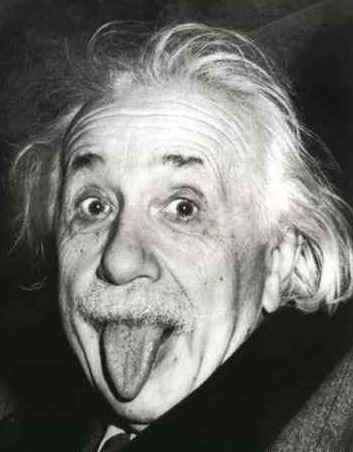Have you ever wondered whether scientific scientists actually influence their science experiments?
They seem important. After all, they’re standing in the middle of the lab wearing white coats and goggles, doing stuff, giving instructions, waving their hands and pressing buttons. But the science machines are all connected to computers that are telling them what to do. If you took the scientist away, could the laboratory do science on its own?
Following on the heels of a recent scientific study of conductors’ influence on the orchestras they conduct, a team of scientists at Moronton University led by Dr Osmosis Los Alamos has conducted a similar survey, studying the impact being a scientist has on doing science.
“Having conclusively proved that being a trained, experienced and competent conductor makes you better at conducting, we wanted to do the necessary, ground-breaking, grant-funding-attracting research to needed to scientifically assess whether basic competence matters in other fields of endeavour, and we decided to start with the field we know best.”
Researchers set up two identical sciencing labs to run an experiment to measure the specrtra produced by super-heated ionic gas clouds using a device called a microwave spectrometer. Each lab was fitted with numerous motion sensors, remote cameras and lab computer activity was tracked remotely.
When the scientists started the experiment, researchers watched to see which team got the best results, who used their time the most effectively, which team caused serious accidents, explosions or fires and which team needed the most or least hospitalization. Researchers also tracked which lab produced the most graduate research assistant fatalities and which computers were used primarily for analysing incoming experimental data, and which were used primarily to access pornography. Using mathematical techniques originally designed by Nobel Prize-winning economist Percy Granger, Los Alamos and his colleagues analysed whether the actions and expertise of the scientists were linked to the effectiveness of the experiments.
The researchers hypothesized that if the actions of the scientists could predict the effectiveness of the experiment, then the scientist was clearly running the lab. But if the scientists’ actions could not predict the progress of the machines, then the experiment was running itself.
(The research study is part of a larger project where Los Alamos is trying to figure out if human activities share something in common with knowing what you are doing. Future studies will focus on how being able to snow peer-review committees under mountains of bullshit and a very effective PR outreach can lead to increased grant funding of pointless research projects)
But the study found more: The researchers had two scientists give the same lecture on advanced quantum mechanics. One was a veteran university professor who possessed an ironclad understanding of the material. The other was an idiot.
“What we found is the more the influence of the science professor to the science students, the more education — educationally effective the lecture was overall,” Los Alamos said.
Science experts who listened to the lecture of the students under the control of the two speakers found the version produced by the person who actually knew anything about quantum mechanics to be educationally superior. Remember, these experts didn’t know which version was being led by the veteran science professor, and which by the idiot. All they heard was the lecture.
Next up will be a study about whether journalists with a technical background in the field they are writing about produce more informed articles about the subject they are covering than those whose expertise lies elsewhere.


It took a minute for me to get this (thankfully I missed the NPR item). Oy. When journalists who know nothing about music try to write about it, and they do it so poorly, and in such a visible way (I know people who trust everything they hear on NPR), it is a serious disservice to all.
I agree. The real scientific mystery is why a science reporter completely out of his depth wasn’t at least partnered with one of NPRs fantastic team of classical editorial experts. They’ve got such great, brilliant people working there, why not use them? The whole thing was so out of character for NPR, who do an astonishingly good job day in and day out making sense of the world. This was more the level you’d expect from local TV news.